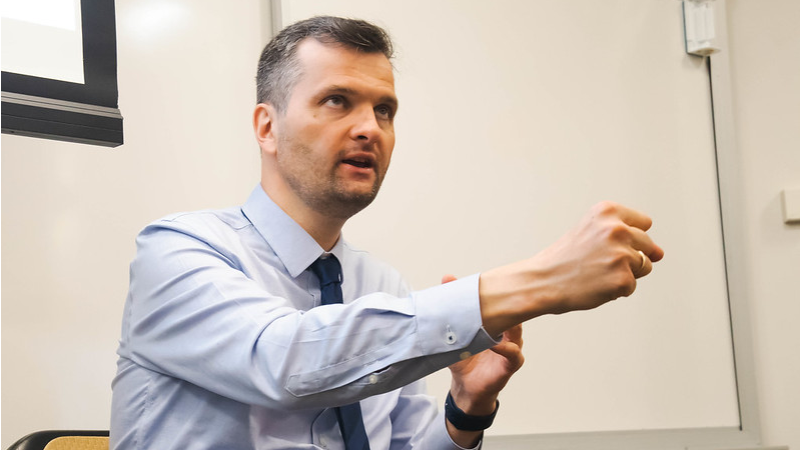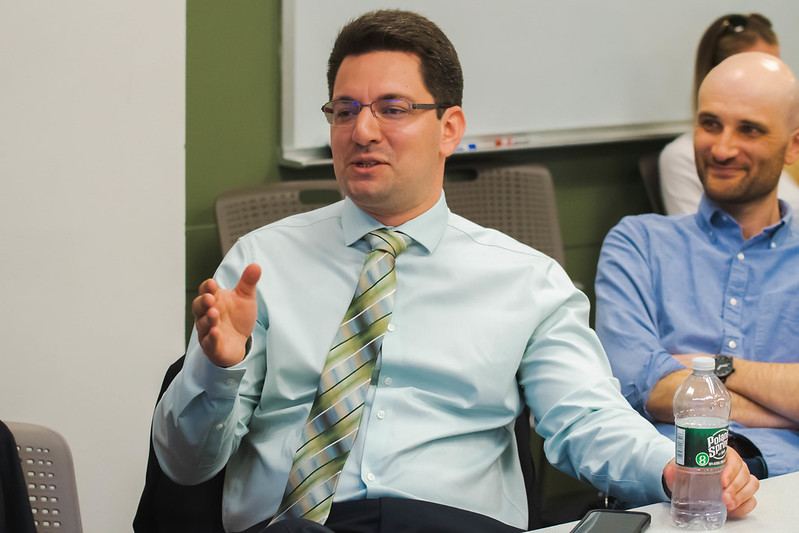
Reconciling Justice: A Conversation with Mikhail Troitskiy
By Alexander Thomas, MALD 2023 Candidate, The Fletcher School
On April 12, 2023, Mikhail Troitskiy discussed “Power and Principle in Russia’s Wars and Negotiations” with students at The Fletcher School. Troitskiy is Professor of Practice in Russian Studies at the University of Wisconsin-Madison, former Dean and Associate Professor at the MGIMO School of Government and International Affairs in Moscow, and an IMARES Program Professor at European University at St. Petersburg. His research focuses on Russian foreign policy, U.S.-Russia relations, and conflicts, security, and politics in Eurasia.
In the morning, Professor Troitskiy joined students in Professor Chris Miller’s class on Contemporary Russian Foreign Policy. Later in the day, he held an open discussion about the implications of justice and domestic polarization on international politics, and how these factors shape global politics in the modern day and age.
Troitskiy began the afternoon session by speaking about the important role of justice in international politics. According to Troitskiy, the growing importance of justice in domestic politics has increasingly crossed over into international relations. He stated that the rhetoric of justice has the potential to impact states’ behavior in their conflicts and negotiations. The professor then shifted the discussion to the concept of spheres of influence, which refers to an exclusive claim of influence by great powers over smaller ones and how it can clash with the rights asserted by smaller states.
In terms of the impact of domestic polarization on global politics, Troitskiy argued that the internal divisions within countries could escalate conflicts and challenge the notion of restraint in international politics. He also emphasized the importance of fostering mutual understanding and dialogue between polarized factions to prevent conflicts from spiraling out of control into larger regional or international conflicts.
Troitskiy’s ideas on justice can easily be applied to the ongoing Russian invasion of Ukraine, which began in February of 2022. In this context, Russia’s actions can be seen as an attempt to assert its perception of justice in the region. The Kremlin views the integration of Ukraine into Western organizations like NATO and the European Union as a threat to its security interests and an encroachment on its sphere of influence.
Through Troitskiy’s explanation of spheres of influence, the struggle between Russia and Ukraine can be viewed as a manifestation of competing principles of justice. Russia has long seen Ukraine as part of its sphere of influence and has been unwilling to accept Ukraine’s right to choose its alliances and foreign policy orientations. Russia sees these choices as a direct threat to its sphere of influence not only in Ukraine, but also among other countries in the post-Soviet region.
The discussion on “Power and Principle in Russia’s Wars and Negotiations” offered significant insight to Fletcher students into the ever-evolving role of justice in international politics, as Professor Troitskiy helped to illuminate the complexities of the Russia-Ukraine conflict and potential paths towards resolution.

